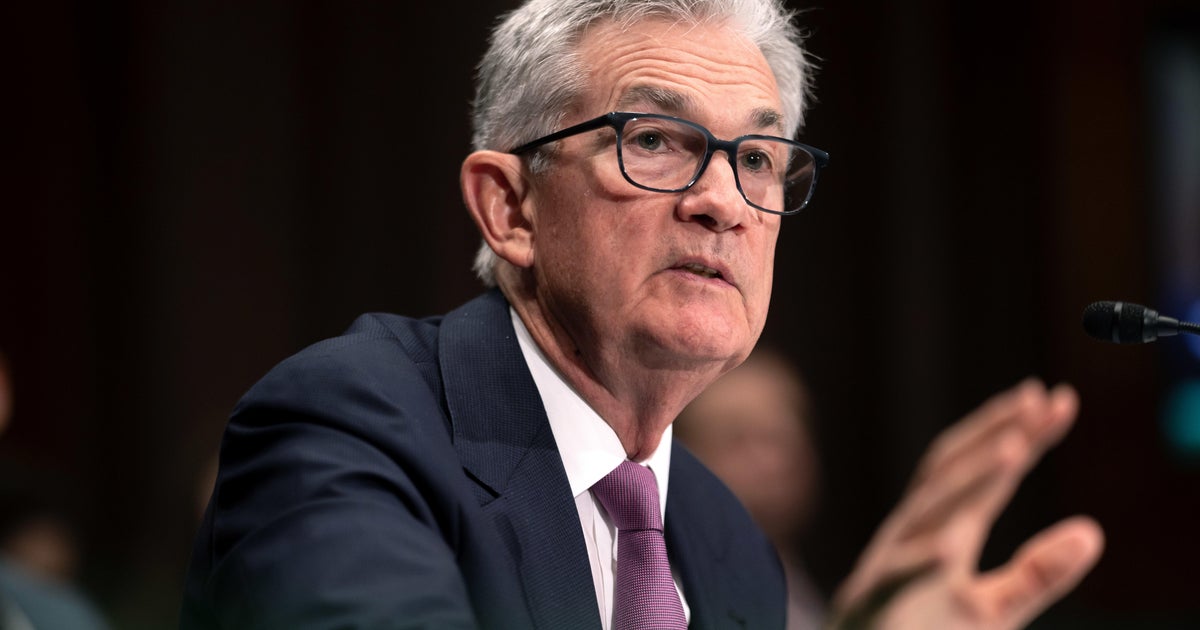The US economy continues to perform well despite the Federal Reserve's interest rate hikes, leading to questions about whether rates need to be higher and more prolonged to cool inflation and slow growth.
Philadelphia Federal Reserve Bank President Patrick Harker suggests that the central bank may maintain steady interest rates in September and for an extended period of time to allow previous rate hikes to continue lowering inflation.
The former president of the Boston Fed suggests that the Federal Reserve can stop raising interest rates if the labor market and economic growth continue to slow at the current pace.
The Federal Reserve is expected to hold interest rates steady this month, but inflation could still lead to additional rate increases.
Traders and investors are betting that the Federal Reserve will hold interest rates steady at its September meeting, indicating a shift in the market's interpretation of good economic news, as it suggests the Fed may be close to pausing its rate hike cycle despite inflation being above target levels and potential headwinds in the economy.
The Federal Reserve is expected to keep its key interest rate steady in its upcoming meeting and provide insights on the duration of high interest rates.
Federal Reserve officials are expected to keep interest rates unchanged at their policy meeting this week but will leave the door open for another rate hike, as they remain cautious about inflation and aim to keep financial conditions tight.
The Federal Reserve is expected to hold off on raising interest rates, but consumers are still feeling the impact of previous hikes, with credit card rates topping 20%, mortgage rates above 7%, and auto loan rates exceeding 7%.
The Federal Reserve is expected to announce a pause on interest rate hikes due to positive economic indicators and the likelihood of a "soft landing" for the economy, but future decisions will be influenced by factors such as the resumption of student loan payments and a potential government shutdown.
The Federal Reserve is expected to maintain steady interest rates at its two-day meeting, but investors will be focused on policymakers' economic forecasts, while metals prices remain mixed and U.S. stock markets anticipate the release of the Fed's policy projections.
The US Federal Reserve holds interest rates steady at 5.25% to 5.50%, projects higher rates for next year, and expects stronger economic growth, causing a slight drop in Bitcoin's price.
The Federal Reserve held off on raising interest rates at its September meeting, but economic activity and rising energy prices are likely to drive their decision in the next meeting.
The Federal Reserve has decided to pause interest rates while closely monitoring economic data, particularly unemployment and wages, as concerns about a potential recession and inflation remain.
The Federal Reserve's decision to leave interest rates unchanged means that savers and individuals with surplus cash have the opportunity to earn a higher return on their money than in recent years, with online banks offering high-yield savings accounts that can provide a return above inflation.
The Federal Reserve has indicated that interest rates will remain "higher for longer," potentially for at least three more years, in order to sustain economic growth and combat inflation.
Central banks, including the US Federal Reserve, European Central Bank, and Bank of England, have pledged to maintain higher interest rates for an extended period to combat inflation and achieve global economic stability, despite concerns about the strength of the Chinese economy and geopolitical tensions.
The Federal Reserve has paused its campaign of increasing interest rates, indicating that they may stabilize in the coming months; however, this offers little relief to home buyers in a challenging housing market.
The Federal Reserve has kept interest rates steady, but economists are skeptical that a soft landing for the economy is guaranteed due to high inflation and continued economic growth.
The Bank of England's decision to hold interest rates is beneficial for borrowers but negatively impacts savers, who are losing out on higher returns from fixed-rate savings bonds. However, analysts predict that rates may not increase further, making it a good time for savers to secure a fixed-rate bond with high returns.
J.P. Morgan strategists predict that the Federal Reserve will maintain higher interest rates until the third quarter of next year due to a strong economy and continued inflation, with implications for inflation, earnings, and equity valuations as well as potential impact from a government shutdown.
The Federal Reserve will continue to raise interest rates as inflation resurfaces, according to Wall Street investor Caitlin Long, with big corporations benefiting while other sectors of the US economy are already in recession.
Indonesia's central bank, Bank Indonesia, is expected to maintain stability in currency and bond markets by holding interest rates steady at its upcoming policy meeting as it aims to bolster confidence in the country's economy and prevent further market turmoil.
The Federal Reserve's decision to keep interest rates high for a longer period has sparked a debate among financial experts over the possibility of an impending recession.
The Federal Reserve is facing a tough decision on interest rates as some officials believe further rate increases are necessary to combat inflation, while others argue that the current rate tightening will continue to ease rising prices; however, the recent sell-off in government bonds could have a cooling effect on the economy, which may influence the Fed's decision.
The Federal Reserve is expected to keep interest rates higher for longer due to the potential inflation caused by rising oil prices amid the escalating war between Israel and Hamas, according to billionaire venture capitalist Chamath Palihapitiya.
The report on consumer prices in September shows that inflation remains steady but still poses challenges, leading economists to predict that the Federal Reserve will keep the possibility of a final interest rate increase this year open.
The Federal Reserve will continue with its 'higher-for-longer' interest rate narrative unless there are signs of a slowdown in the consumer sector.
